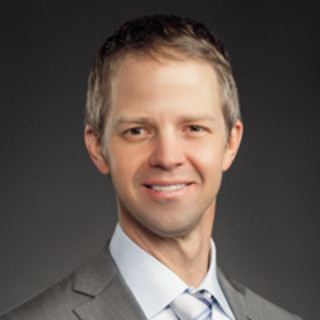I have recently had the privilege of becoming a program director, something I’ve always dreamed about. Ever since residency, I developed the most profound respect for the program director, who seemed to intuitively know and understand the residents as individuals better than any other faculty in the program. While my position is much more modest — a single orthopaedic surgery fellow rather than 40 orthopaedic residents — I relish the opportunity to teach and mentor the next generation of surgeons. It’s a dream I think many of us have.
It’s also a very real need.
An avalanche of data and public media support the notion that there will be a physician shortage. Furthermore, as medicine becomes more technically complex, an ever-increasing number of trainees are seeking fellowship subspecialty training. Currently in my field, about 90% of orthopaedic residents seek fellowship training, and the most common specialty is my own, sports medicine.
Considering these trends, you might think that a group with the clinical practice and an interest in training fellows would be encouraged or even supported to seek accreditation. You would be mistaken.
I certainly have been.
My journey toward accrediting a fellowship program began over two years ago, and we will not have a trainee for another two years. However, since the first accreditation of our institution, we have already had a second site visit — even though we have had no trainees. Each of these site visits, a half-day conversation hosted over an online platform, costs our institution over $6,000, not to mention taking two surgeons, two administrators, and additional staff away from other duties, such as patient care.
When we were first denied, I was eventually able to reach someone to discuss our application. The conversation went something like this (paraphrased for brevity with names and positions redacted):
“You just need to talk to some of your buddies and see how they do these things that are required.”
“Why not have a list of what the requirements are, and I can confirm that we complete them? Otherwise, I’m just guessing at what you want.”
“Others have done this before, you might want to see how they crafted their policies.”
“Wait, it seems like you’re saying I should just copy someone else’s policy and put our name on it.”
“That would work.”
On the second application, I did just that. I contacted friends (who will also remain nameless) and lightly edited their policies.
Then came the site visit for the program. At one point, I was explaining how we do things and was later cited for not describing precisely what was on the application.
A similar conversation ensued.
“You just need to go off what is on the application.”
“It sounds like if I literally read the application back on Zoom, that would be the best way to avoid being cited.”
“Yes. That would work.”
This is the opposite of everything you learned in kindergarten. The message is clear. Copy off a friend then stick to your story.
Then there are the delays.
After processing the application, it was October. A second site visit could not be conducted until January. Interviews for our specialty occur in February and March. I called to see if there was any chance we could be accredited in time to interview this cycle. Because if not, another year would pass before we could train a fellow.
“No way. That committee will not meet again until April.”
So another year passes. And because of these delays, another site visit will be required before a fellow even arrives. Same costs, same day out of clinic, and the same application.
One starts to feel that the polar ice cap is melting at a faster rate than the accreditation process. And while this is no way to run a business, a business is just what the ACGME is.
The ACGME’s stated mission is:
“…to improve health care and population health by assessing and enhancing the quality of resident and fellow physicians' education through advancements in accreditation and education.”
And herein lies the rub. “Assessing,” oh yes. “Enhancing,” afraid not. “Advancements in accreditation,” maybe. “Advancements in education,” not that I have seen. In my experience as a trainee, as a fellowship faculty member, and now as a program director, I am challenged to identify an instance where the ACGME helped train a young surgeon. The unfortunate reality is that assessment and accreditation are what generate revenue for the ACGME while enhancing and advancing education for the trainees, ironically, does not.
Despite all the frustration, I must assume the best of the ACGME. I must believe these are well-intentioned people who want happy, productive trainees. But whether they are aware of it or not, the system is fundamentally punitive rather than productive.
And that is where the idea of defunding the police — a once radical concept that money should be diverted from traditional policing by means of law enforcement to support social programs that treat the underlying causes of crime — has applicability to the ACGME.
The two primary bottlenecks in physician training are spots available at medical schools and spots available in residencies. Residency spots are in part limited by lack of GME funding, which is drawn from Medicare and Medicaid. Administrative costs, like those driven by accreditation, further increase the cost and burden of training residents. In this sense, paying the ACGME police force is placing more burden on the educational community rather than supporting it.
What if the ACGME mission was revised to “improve health care and population health . . . by facilitating the training of more physicians by willing physician teachers and mentors”?
Many friends and colleagues tell me they feel more disincentivized than ever to teach. Of the classical triple threat in medicine, clinical productivity and research productivity are more highly valued than the teaching role.
How can the ACGME help? Here are a couple ideas:
1) Empower the office staff at ACGME to shepherd aspiring programs through the process. Give us the best chance to get it right the first time. Connect us with mentors in similar programs who can assist in the process. Promote this collegiality and reward those who train the trainers.
2) Provide the policies needed to ensure trainees are treated fairly and equitably and the training resources for programs to educate faculty, instead of demanding the programs write the policies and create the modules from scratch or buy the training modules at additional expense.
3) Reduce the administrative cost burden by streamlining the application process, reducing the cost of site visits, and aligning with the existing academic calendar. At a national level, the ACGME should obtain grants and secure funding to support itself rather than feeding off programs who could apply those resources to improving and enhancing education.
4) Provide the materials and platform to evaluate applications, conduct interviews, and generate a rank list. Third-party applications charge individual programs for this, further increasing the costs and financial burdens.
5) Provide the platform and process for conducting evaluations, send the reminders, collect and process the data, and provide insights for improvement with comparison to similar programs, and establish a national baseline. Then, if needed, address programs that need remediation or additional support.
6) Provide templates for required meetings and requirements to be submitted according to the preferred ACGME guidelines. Each program need not reinvent the wheel.
I have been in and around graduate education for almost 20 years. I appreciate and value my experience as a resident and fellow and cite my experiences even 10 years into independent practice. The graduate medical system does not need to be destroyed or eliminated, but it can and should be improved.
What has your experience been with ACGME? Share in the comments.
Brian Gilmer is an orthopaedic surgeon in Mammoth Lakes, CA, and Reno, NV. He is faculty for two sports medicine fellowships and looks forward to welcoming a new class of fellows for interviews. Brian is a 2022–2023 Doximity Op-Med Fellow.
Image by Denis Novikov / GettyImages







